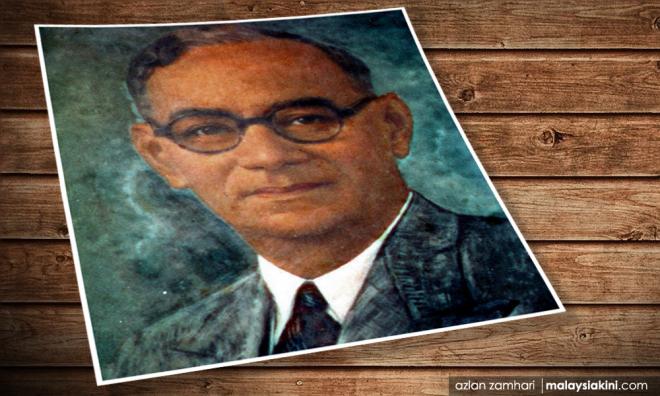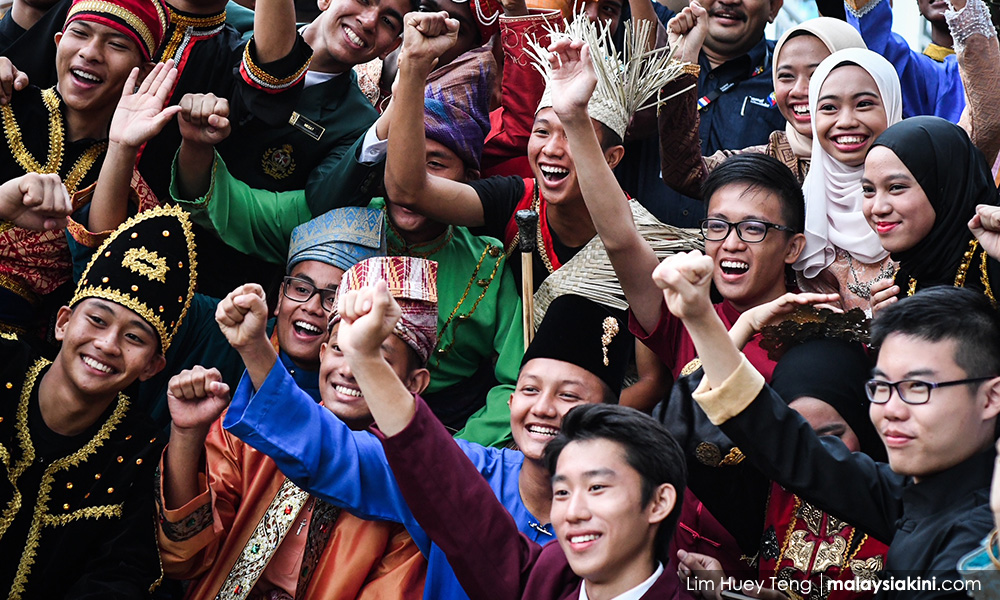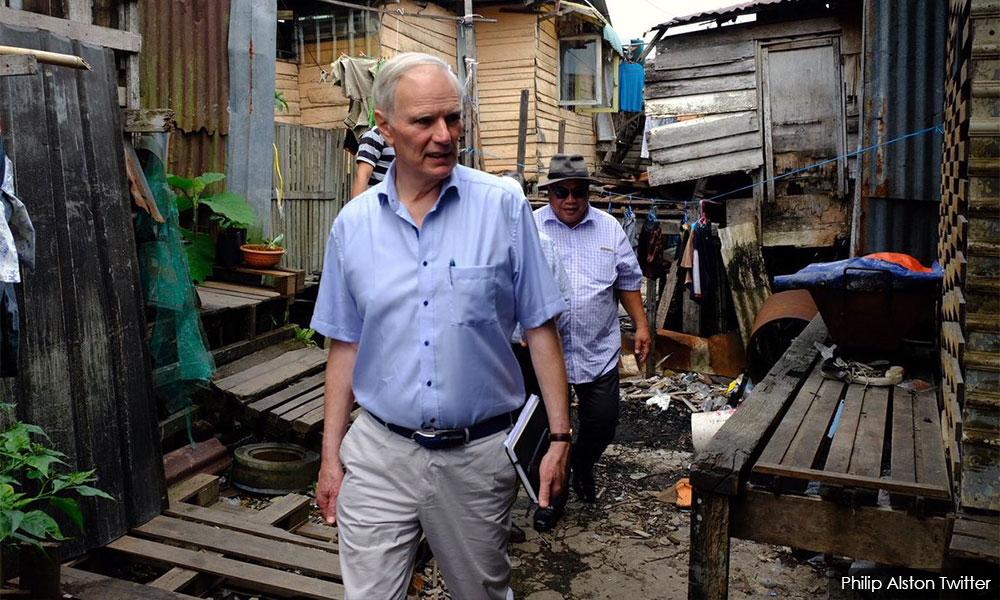
Where are the leaders who care for the future of a peaceful multiracial democratic Malaysia? Where are visionary leaders like Onn Jaafar (photo above)?
After 50 years of the New Economic Policy (NEP) why are non-Malays being accused of trying to undermine Malays? The government has set up for the Malays exclusive institutions and schemes like Mara, UITM, Felda, Felcra, Risda, PNB, Amanah Saham, Tabung Haji and so on.
The civil service and the armed forces are more than 80 percent Malay. The GLCs are effectively run as Malay institutions. The entire administration of the Muslim faith is funded and managed by the government.
The government of the country has been controlled substantially by the Malays ever since our independence.
How can the Chinese and Indians be accused of undermining Malays and Islam when they have absolutely no power to do anything on their own?
There is a difficulty with analysis which proceeds on generalisations. Generalisations can be very misleading. Not all Malays are clearly on the side of the questions raised. To suggest that is wrong. Quite often some Malay politicians make extreme statements to get the support of less discerning Malays and Muslims.
What is truth or fake news is often hard to glean or discern. Especially when what is said comes from the mouths of respected leaders.
We are more than 60 years from Independence and yet the status of non-Malays continues to be raised and challenged. How long can this go on?
It is time for all Malaysians to accept certain realities or inevitabilities about the country. We are a constitutional democracy. The Constitution is the supreme law of the country. It sets up the scheme and structure of our government. Any law that is inconsistent with the constitutional scheme or with any provision of the Constitution is illegal and will be held to be invalid by our courts.

We are a multiracial, multicultural and multireligious country. Freedom of worship is a fundamental liberty and all Malaysians are equal under the law. Discrimination is unlawful.
There is only one class of citizens under our Constitution - although Article 153 gives a class of Malays some special protection.
There is no scenario where the rights of non-Malays and non-Muslims can be ignored or disregarded. Non-Malays (especially the non-Malay poor) deserve as much consideration as the Malay poor.
The recent disclosure by the UN Special Rapporteur on Extreme Poverty and Human Rights Philip Alston (photo, below), that poverty in Malaysia is much higher than that reported by the government, was shocking. It is not 0.4 percent but closer to 15 percent and if we accept Bank Negara’s living wage index, the figure will be closer to 40 percent.
Many of the poor are Malays. But there are non-Malay poor as well. The Orang Asli, the indigenous people of Sabah and Sarawak are the poorest of the poor. The B40 Indians require special assistance to lift them up from entrenched poverty.
A non-racial approach to poverty eradication cannot be controversial. It cannot be wrong in any faith tradition to help the poor whatever their race or religion.

The fact that there are so many poor Malay households despite years of special assistance must mean that previous policies and actions need to be reviewed for effectiveness. Wealth distribution within communities is an issue. Non-Malays do not oppose anything done for the poor.
Aid for the poor must be focused and targeted to bring maximum benefit to those most in need. The government should prioritise affordable housing, free access to health services, subsidised food or some system of food rationing to ensure that the poor receive adequate nutrition and quality education and skills training.
Look to Singapore for affordable housing. Learn from them. Look to Kerala in South India as a model for healthcare, food rationing, empowerment of women and literacy. Look to Singapore, China, Japan, South Korea and Finland for educational systems.
English language proficiency
English language proficiency is not an option for us. It is a must. It will open our people to the world at large and allow them continuous learning through the internet and through English language books. Today China and India each have larger numbers of English language proficient people than other countries of the world.
It is difficult to understand why the minister of education is so slow in making reforms to the educational system. There is the suggestion of resistance to changes that will cause Malays to think, as that will cause them to question government policies and actions. That cannot be right. The idea that a Malay government will deliberately keep the minds of the Malays closed to make them easy to control and manipulate is nonsense and cannot be taken seriously.
There are concerns about which system of education we should learn from, adopt or follow. There is the American way, the English way, the Finnish way, the Japanese way, the Chinese way and so on. The truth is we should pick elements from everywhere that work best for us.
For a long time, the English way worked for us. Our system is still an adaptation of the English way, except that the English language is no longer used for instruction and the English curriculum and textbooks are no longer used. In the United Kingdom, schools are free to choose textbooks. So, there is competition among academicians and teachers to produce the best textbooks.
Given the pace of change in the world today, we cannot continue to teach our young from translated material. They will always be behind the changes that are taking place in knowledge and teaching methodology. Today everyone accepts that self-learning is the best way to go. So, students must be given the skills required for continuous learning and for self-learning.
There is much that must be done to grow our economy, make the reforms necessary to secure our democracy and create the checks and balances necessary to prevent abuse of power and corruption. There is much to be done to bring our people together.
These are our priorities. Not race-baiting or race-bashing. We need to accept our racial and religious differences and move on. As we have always done. Support only visionary statesmen. Reject the purveyors of hate and division.
DAVID DASS is a lawyer. - Mkini
No comments:
Post a Comment
Note: Only a member of this blog may post a comment.